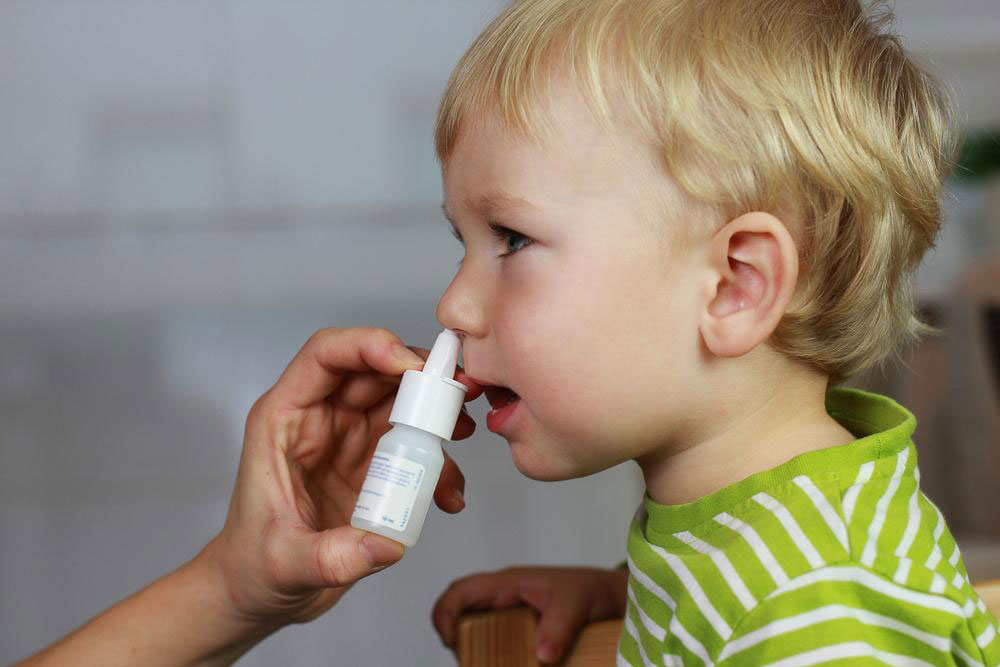Different Allergy Medicines for Kids

Kids are more prone to allergies and it has been observed that most of the kids are more prone to food allergies because their immune system is not fully developed to adopt any food. That is why most kids are allergic to foods like milk, eggs, peanuts, soy, wheat, walnuts, cashews, fish or more.
Few of the common symptoms of kids’ allergy
Few of the most common allergy symptoms in the kids are as follows:
- A skin rash or redness in the skin scientifically termed as eczema
- Asthma or difficulty in breathing
- A runny nose or symptoms of a cough or cold
- Itchy or watery eyes
- Sneezing
- Upset stomach
- Dizziness
Few of the most common allergies in kids
List of common allergies that can be found in kids are:
- Allergies caused outdoor are from insect bites or stings, tree or plant pollen, etc.
- Allergies caused indoor are from dust mites, molds, etc.
- Pet or animal hair or fur.
- Irritation due to smoke of cigarette, perfume or car exhaust, etc.
- Foods allergies, as discussed above, through peanuts, milk and its products, etc.
Allergy medicines for kids
We have already discussed that kids are more sensitive and prone to allergies than adults; therefore, one should always be aware of all the medication that can treat such allergies.
Here is a list of available medicines which help in allergies:
Antihistamines
The medicine blocks the histamine from connecting to tingle creating, snot-production body cells. Hence this is the best medicine which is prescribed for a runny nose, drippy nose, and nose congestion problems. This drug works instantly and works effectively on the kids by providing them instant relief. This can be utilized on and off all through the sensitivity season. Antihistamines are best for mild, common allergic symptoms.
Some of the antihistamines over-the-counter medicines are:
- Cetirizine/Zyrtec
- Diphenhydramine/Benadryl
- Fexofenadine/Allegra
- Loratadine/Alavert or Claritin
Some of the common things to know before giving antihistamines to the kids are as follows:
- Few of the antihistamine medicines are effective for a short time hence they have to be given after every 4- 6 hours.
- For medicines which are long-acting, one should only be given once every 12-24 hours.
- One of the most common side effects of antihistamines, which may be faced by your kid is dry mouth and drowsiness, hence try to hydrate your kid with sufficient liquid.
Nasal sprays
For any nasal allergy, a nasal spray is recommended to the kids as these sprays contain a little measure of steroid to diminish swelling. Nasal steroids are the best for clogged and stuffy noses. Most of the allergists prescribe the use of these sprays before the symptoms exist mainly in the allergic seasons to avoid the risk of any allergy. It helps the kids to breathe better without any congestion difficulty.
Some of the nasal sprays over-the-counter medicines are:
- Flonase
- Nasacort OTC
- Rhinocort
- NasalCrom
Further, ensure that your kid must use the nasal spray as per the guided instructions.
Eye drops
For an allergic reaction to the eyes, eye drops are prescribed by the allergist to reduce the itchiness from the eyes or any watering of the eye. The eye drops consists of the substances like mast cell stabilizer and the antihistamine which may result in improving the eye condition. Mast cells are the natural body cells which help in releasing the histamine from the body. Hence the mast cell stabilizer in the eye drops helps in controlling the problems of itchiness and water from the eyes.
Some of the eye drops over-the-counter medicines are:
- Zatidor
- Visine-A/ Opcon-A
Further, ensure that your kid must use the eye drops as per the guided instructions.
Food allergies
To avoid any food allergies, it is best to avoid the allergic food from the kid’s diet, further in this case if your child has consumed any allergic food than he or she should be provided with immediate medical attention. As food allergies are quite dangerous at some point and need immediate medical aid, it is best to avoid such foods from your kid’s diet regime.
These are the allergy medicines for kids which help by providing instant relief to the kids in any of the allergic reactions mentioned above.
It has been recommended that you should ask your pediatrician about the time the allergy medicines for kids should be given to your kid.
However, never give any medicine on your own as it may be harmful to your kid. A pediatrician is the best person who can guide you on the accurate dosage and timings of the allergy medicines for kids.
Always consult your family doctor or the pediatrician before introducing any new food to your kid.



